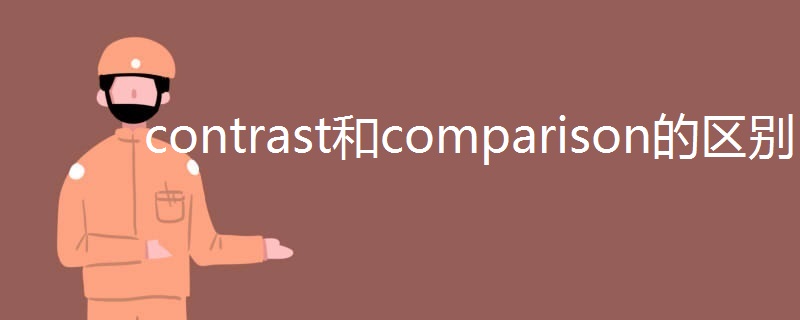-
-
comparison是compare的名词形式,contrast既是名词,也是动词。contrast意为“对比”,着重于“相异处”。而comparison意为“比较”,着重于“相似之处”。

contrast和comparison有哪些不同
Comparison 通常用于寻找事物之间的共同点,强调的是相同或类似之处。它是一个名词,可以用于固定搭配如 "comparison of A to B" 或 "comparison with",意味着将A与B进行比较,以发现它们之间的相似性。例如:"The poem contrasts youth and age."(这首诗对比了青春与老年)。
Contrast 则侧重于发现事物之间的差异,强调的是不同点。它既可以作为名词也可以作为动词使用。作为名词时,它指的是明显的差异或对照,如 "There is an obvious contrast between the cultures of East and West."(东西方文化之间存在着明显的差异)。作为动词时,它意味着对比或对照,形成明显的差异,如 "The poem contrasts youth and age."(这首诗对比了青春与老年)。
contrast和comparison的例句
Contrast例句:
There can be no differentiation without contrast.
有比较才有差別。
The black paint on the door provides a contrast for the white walls.
门上的黑漆与白墙形成对比。
Such a contrast between brother and sister is surprising.
兄妹之间如此之大的差别令人惊讶。
Comparison例句:
1.To have a better comparison, we need to go further and address such issues as repairs and insurance.
为了有一个更好的比较,我们需要更深入一步谈谈诸如维修和保险等问题。
2.The comparison shows considerable disagreement between theory and practice.
这一对比表明理论和实践之间有相当大的出入。